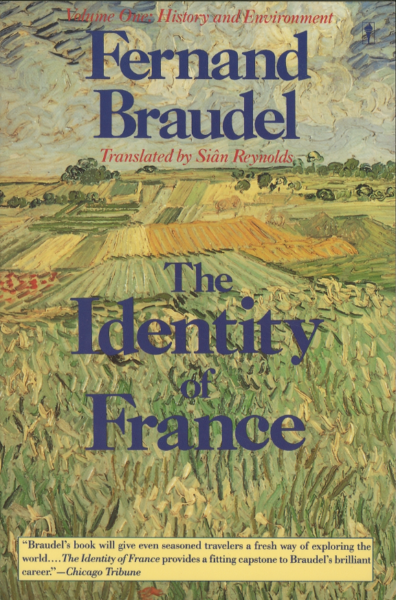Ed West on the historical divisions of the many regions in what we now know as “France”:
France is gigantic, like a continent in itself, and the most visited country on earth. It is four times the size of England and until the 17th century had a population four to five times as big (today it is 67 million v 56 million). Yet “France” until relatively recently extended not much further than Paris, in the area under the king’s direct control called the Île-de-France — beyond that, regional identity was distinctive and dialect pre-dominated.
As Robb writes, at the time of the Revolution just 11 per cent of the population, or 3 million people, spoke “French”; by 1880 still only one in five could communicate in the national language. Even with decades of centralisation, today there are still 55 distinct dialects in France; most are Romance, but the country is also home to Flemish, Alsatian, Breton and Basque-speaking communities. (Tintin has been translated into at least a dozen French dialects.) No regional identity in England, except the north-east, is as distinctive.
Many famous French historical figures wouldn’t have even understood “French”, among them St Bernadette, living in the then obscure village of Lourdes. She described the figure she saw as un petito damisela (or in French une petite demoiselle), the name for the local forest fairies in the Pyrenees. The Demoiselles dressed in white, lived in caves and grottos and were associated with water. They were also seen as being on the side of the poor, Robb points out, because here as is often the case there was a political underside to this folk belief. Indeed, a peasant conflict with the authorities from the 1830s to the 1870s had been called The War of the Demoiselles. But then conflict with the authorities — with Paris — almost defines French history.
If you like Robb’s work, you’ll also enjoy Fernand Braudel’s The Identity of France, published in 1986 and supposed to be part one of a series by the great 20th century historian. Unfortunately, Braudel was already dead by the time part one was published, and so the series was never finished.
Braudel loved his country and believed in a deep and abiding Frenchness, yet he was also fascinated by its divisions, the various different pay — from Gallo-Roman pagus — which translates as land, although it can mean either country or region. Within this, dialects can be very varied: Gascon is “quite distinct” to Languedocien and Provencal, he wrote, but in Gascony “two completely different patois” were spoken. Near to Salins the language spoken in each village “varies to the point of being unrecognisable” and “what is more extraordinary” the town “being almost half a league in length, is divided by language and even customs, into two distinct halves”.
France’s regional identity is defined by language, food — the division between butter and olive, wine and cider — and even roof tiles. Braudel was essentially a geographic determinist and, citing Sartre’s line that France was “non-unifiable”, the author lamented that: “Every nation is divided, and thrives on division. But France illustrates the rule rather too well.”
To illustrate the rivalry, compare the words of two 19th-century historians: Jean-Bernard Mary-Lafon, who contrasted the “refined and freedom-loving” southerners with “brute barbarism” of “knights from across the Loire”, violent, fanatical and pillaging. And Ernest Renan, who wrote in 1872: “I may be mistaken, but there is a view derived from historical ethnography which seems more and more convincing to my mind. The similarity between England and northern France appears increasingly clear to me every day. Our foolishness comes from the south, and if France had not drawn Languedoc and Provence into her sphere of activity, we should be a serious, active, Protestant and parliamentary people.”
He was surely mistaken, for it’s the south which is more Protestant and the north more Catholic. Just like in England, where regional and religious identity are intertwined.
Yet it is true that France’s great bounty was also its curse; this western European isthmus forms a natural unit within which the most powerful warlord could dominate, and that man was bound to be based somewhere on the Seine or Loire, close to the continent’s richest wheat-growing area. Yet in the early modern era this unit was far too big to govern effectively — 22 days’ ride from north to south — compared to England or the Netherlands. The author quotes an essayist who suggested that: “France is not a synchronised country: it is like a horse whose four legs move in a different time.”




